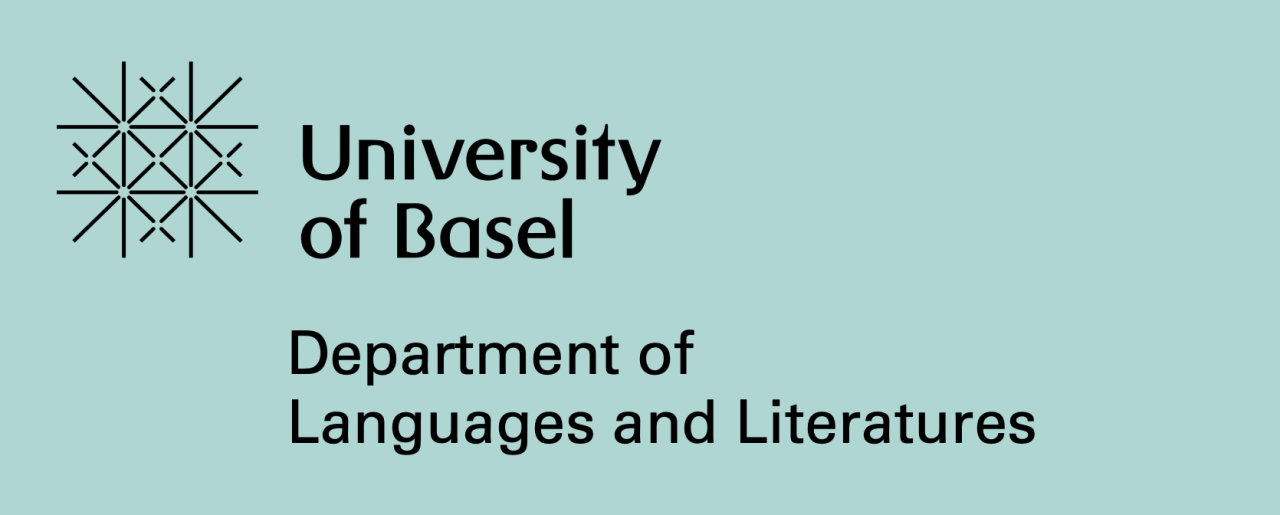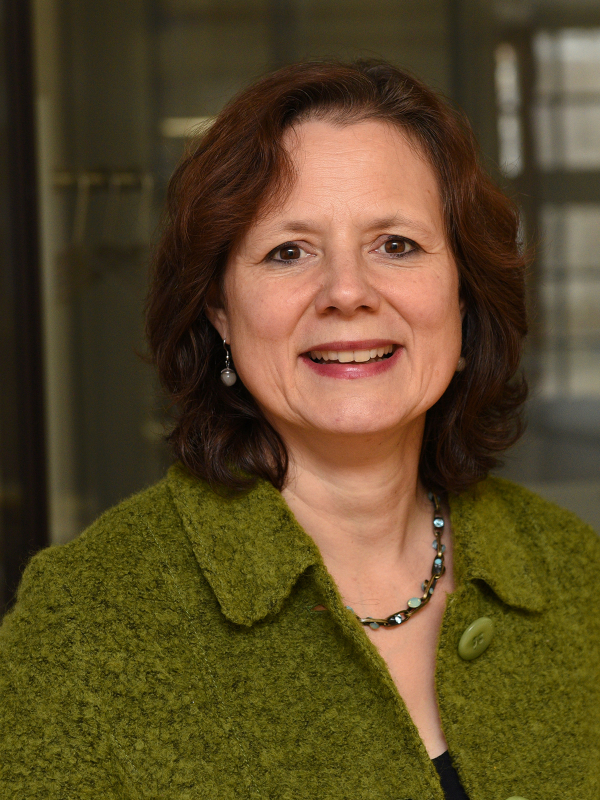Gibraltarian Literature Seminars At The University of Basel

Nineteen students at the University of Basel in Switzerland are currently enjoying the first ever series of seminars focused on Gibraltarian literature.
Led and conceived by Prof. Dr. Ina Habermann who is Professor of English Literature at the university’s Department of Languages and Literatures, the course will involve the analysis and appreciation of the work of Gibraltarian novelists, poets and playwrights.
YGTV caught up with Professor Habermann to find out more about this latest academic development.
Professor Habermann says she first started becoming interested in Gibraltar and its literature around ten years ago.
“In the context of my research project on British Literary and Cultural Discourses of Europe, which also includes research about the ‘British Mediterranean’, I became interested about ten years ago in Gibraltar. In fact, it all started with a close look at a map. Initially, what attracted my attention was Gibraltar’s long-standing strategic importance and its special relationship to the UK, but, over the years, I became increasingly fascinated with Gibraltar’s complexity and cultural richness,” she explains.
She adds that she has been helped by what she calls “a very fruitful dialogue” with the writer M.G. Sanchez and the important symposium which took place in September 2023, where Gibraltarian authors and academics from various other countries came together at the University of Cambridge at the invitation of linguistics professor Laura Wright.
She says this was a key moment and that, “in a spirit of hope and enterprise, we all agreed that Gibraltarian literature and Llanito deserve to be fostered, disseminated and studied. One natural way for me to do this is to introduce my students to Gibraltar’s infinite variety.”
When it comes to selecting texts for reading and discussion, Professor Habermann says she has found the Patuka Press Pamphlets very helpful and will discuss with her students excerpts from Llanito, The Upper Town and Borders and Boundaries. This will be followed by a discussion of Rebecca Calderon’s play The Civil Garrison. Students will then discuss two works by the prolific novelist M.G. Sanchez: The Escape Artist and Marlboro Man. The emphasis of the course is on work that “addresses Gibraltar and its languages, cultures and people specifically.”
The seminars will also look at recent Gibraltarian poetry including the work of Giordano Durante and Gabriel Moreno (as well as Moreno’s music) and poems by the slam poet Jonathan Teuma.

Pic: Professor Habermann
Professor Habermann continued: “Gabriel Moreno kindly shared his new collection of poems Nights in the Belly of Bohemia with me, and the students are excited that they will discuss work that is just about to be published. It is a great way to observe culture in the making.”
Finally, she says, students will discuss Giordano Durante and Gabriel Moreno’s “fascinating poetic dialogue” The Crooked Timber. She says that, in view of the “richness and variety” of the material available, the course cannot be exhaustive, but the excerpts we will read will also include work by other authors such as David Alvarez and Sophie Macdonald.
She continues: “The students were very taken with Giordano Durante’s ‘Tractatus Llanito-philosophicus’ which, half tongue-in-cheek, taps into Wittgenstein’s famous arguments about the linguistic foundation of thought, ending with the hilarious pastiche of the final line ‘Whereof one cannot speak in Llanito, thereof one must be silent.’”
Two sessions in the series of seminars have already taken place, and Professor Habermann says that nineteen “enthusiastic students” on both the Bachelor and Master levels have attended.
Although for most students Gibraltarian writing and culture are entirely new and unfamiliar, some have a personal background as native speakers or learners of Spanish, one student grew up in Tarifa in Spain and has often been to Gibraltar, and another has close friends in Britain who hail from the Rock. Professor Habermann’s colleague Marta Rodriguez Garcia is also teaching a course in Hispanic linguistics this spring term, and some students attend both courses.
Llanito and local bilingualism are also of interest to the students and in wider academic circles. Professor Habermann explains that, given that Switzerland has four official national languages and a great number of dialects, Swiss students “are used to multilingualism and to constant code switching.”
She adds: “In a Swiss educational context, there is a clear conviction that multilingualism is a great asset.”
Although the students will not study Llanito from a specifically linguistic perspective, code switching, vocabulary, etymology, pronunciation and writing style are, says Professor Habermann, relevant to the focus of the seminars.
She expands: “For us in literary and cultural studies, the most important issue is the intricate connection between language, identity, memory and place. For a number of writers, Llanito is the ‘language of the heart’, which they turn to as they remember their childhoods, or the ‘miarma’ of their grandmothers.”
She argues that Llanito in all its varieties is also one of the things that makes Gibraltar special and unique and that, from an academic point of view, this linguistic hybridity, and the code switching that is an intrinsic part of it, “provide fascinating insights into what academics call ‘intersectionality’, which means the complex interaction between such factors as age, gender, ethnicity and also class and class mobility.”
She adds: “I agree with the editors of the Patuka Press pamphlet on Llanito that literature provides a subtle instrument for this process of negotiation since literature is oblique, dynamic, creative and poetic enough to escape cliché and avoid too much navel-gazing.”
Students will also be able to contribute to a conference about Gibraltarian literature to be held in Basel this autumn and they will be able to meet the authors they have studied in person, “which is a great motivation.” The last such conference took place at the University of Vigo in Spain in 2024, organized by Elena Seoane and colleagues. The event in Basel, entitled Gibraltarian Literature: Ways of Being in Language, will take place from the 4th to the 6th of September, 2025.
Professor Habermann says that some key authors have agreed to attend, and the focus of the conference will be on literary creativity.
She ends: “Making the most of our Swiss venue, I am planning to facilitate a dialogue between authors from Gibraltar and the Rumantsch regions of Switzerland. Rumantsch, a neo-Latin ‘minority language’ spoken in the Grisons, is the fourth official language of Switzerland. It is my aim to draw attention to the fact that there are many hybrid languages with a small number of speakers all over the world, and that they often face very similar problems as they try to hold their own in local contexts in the face of an often ruthless globalization. A transnational network of local proponents of hybrid languages and cultures will provide a much-needed counterweight to this. And it will also be fun!”
Latest News
- Peter J Isola Foundation's 5th Annual Charity Padel Tournament Raises Over £4000 For Cancer Relief Gibraltar
- Chief Minister Writes To Prime Minister Modi And High Commissioner Doraiswami
- Med Steps 5 Challenge Raises £28,900 For Cancer Relief
- 2025 GCS Cultural Awards – Call For Nominations
- Opportunity For Students To Attend UK Political Party Conference This Autumn
- Government Launches New Email Address For Citizen Queries
- Defibrillator Battery Theft At Eastern Beach
- Government Announce Additional Parking For Summer
- Scholarship Awards 2025
- British Forces Gibraltar Celebrate His Majesty King Charles III’s 77th Birthday With Ceremonial Parade In Casemates Square



